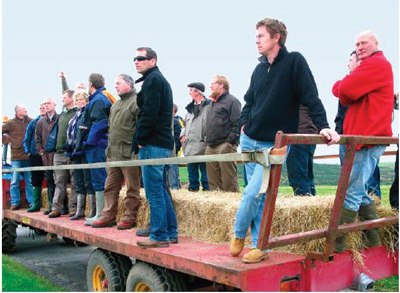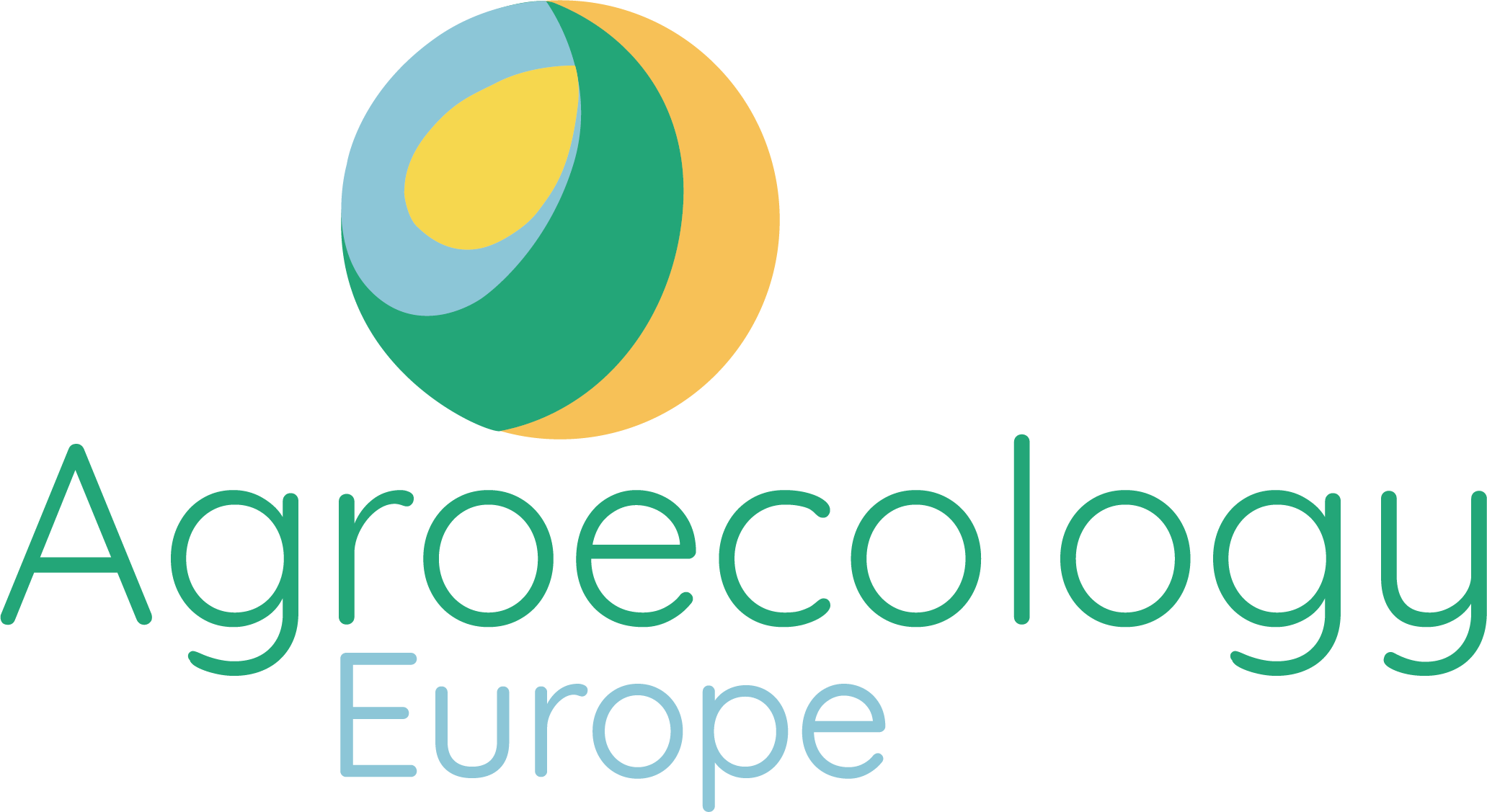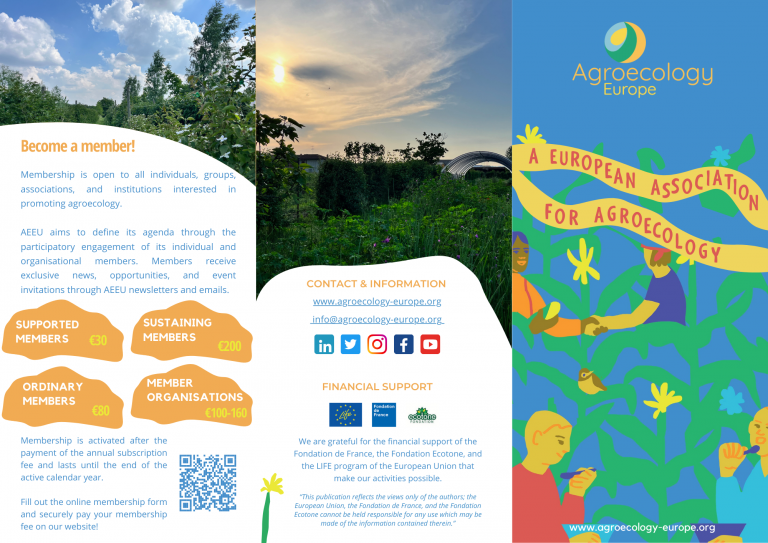
The Association has a non-profit and international goal: to analyse, design, develop, and promote the transition towards agroecological farming and food systems.
The aim of the Association is to support agroecological research, education, and training, share and disseminate agroecological knowledge, and promote agroecology in the farming and food sectors and in society.
Our vision
Agroecology Europe intends to place agroecology high on the European agenda of sustainable farming and food systems.
We foster interaction and knowledge sharing to create an inclusive European community of professionals, practitioners, and societal stakeholders in agroecology.
Detailed objectives are to:
- stimulate exchanges and collaborations between scientists, advisers, farmers, food producers, consumers, other stakeholders and citizens in Europe;
- stimulate, coordinate and facilitate research, education and agricultural extension;
- disseminate all aspects related to agroecology and sustainable development of agricultural systems;
- disseminate agroecological initiatives, techniques and practices among interested stakeholders;
- develop international cooperations;
- engage in and facilitate debates to clarify the relationship between agroecology and other approaches such as organic farming, permaculture, biodynamic farming, climate smart agriculture, ecological and sustainable intensification;
- support farmers’ organizations working in agroecology;
- act as a think tank for facing present and future challenges of European agriculture;
- support governmental and non-governmental organizations for improving their capacities in agroecology;
- promote agroecology in society as a whole;
- create a community of professional agroecologists;
- liaise with similar regional, national and international associations and societies;
- foster interdisciplinary and transdisciplinary research approaches in agroecology.

